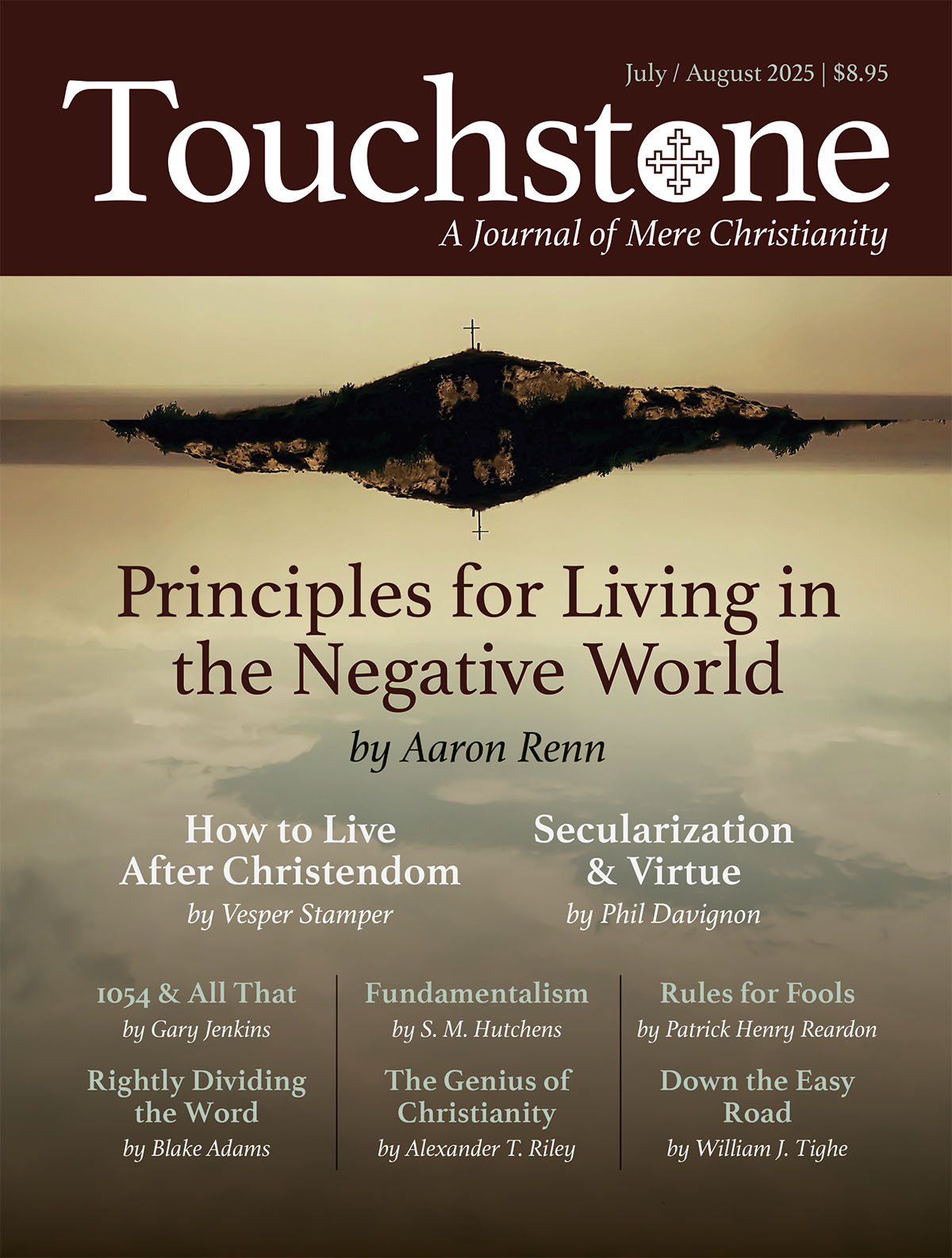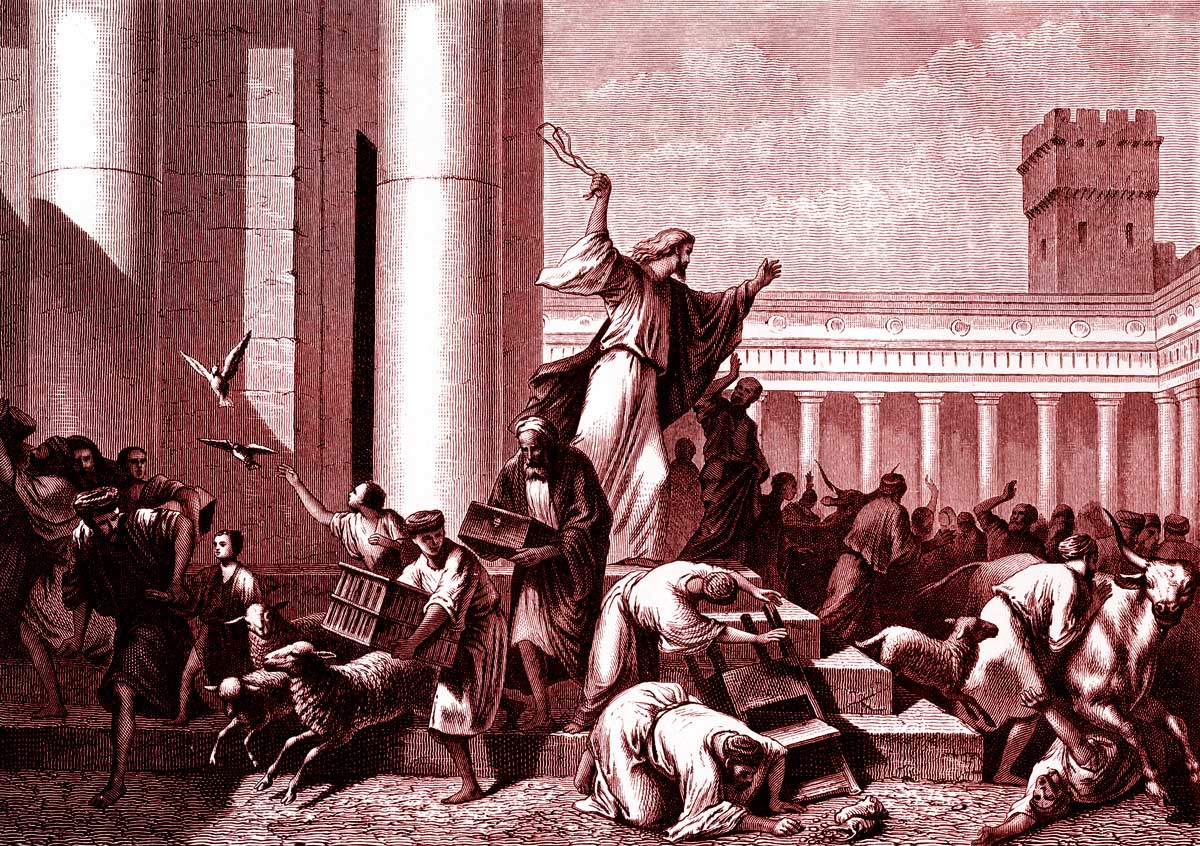Fundamentalism
A Cross We Must Now Take Up
Across from me in the office of the little church where I was pastor sat a very distinguished old man whose daughter was one of its members and wanted me to meet him. I was very glad to do it, because I had heard his name as a boy as a nationally known preacher and evangelist. Many years later now, I was being given the serendipitous opportunity to meet him. He turned out to be one of those larger-than-life figures who, with a booming clerical orotundity now nearly extinct, dominated whatever room he was in—and now he was in my office holding court. He had heard that I was a promising young man but, by his standards, in danger of veering off into unorthodoxy if I stayed my present course. And although I was in my thirties and finishing the last of four degrees in theology, he spoke to me as though I were a backwards child who needed instruction on rudiments of biblical authority.
“Which translation do you use?” he asked.
“I read the RSV from the pulpit,” I replied, “and check the translation if I think I need to.”
Hearing this, he showed me his Bible and said (I’m not making this up), “I use the Authorized Version. Do you know what that means?”
“Yes,” I told him; “it’s commonly called the King James Bible, and was authorized by royal authority to be read in the churches.”
To this he replied, “That’s right. It’s the authorized version, and that is how I know it’s the inerrant Word of God—and I have always preached as I believe,” he added.
I am rarely lost for words, but here I was. I simply didn’t know how to go on with the conversation. This man, apparently through mere force of personality—and it was very great—had gotten away, apparently unrebuked, with believing that the King James Bible was the inerrant Word of God because James I had authorized it to be read in English churches—and expected me to believe every word of it for the same reason. He was a gentleman, and didn’t press me any further, just left me to ponder his testimony.
A Negativizing Transition
I, too, love the King James Bible and use it often, but this strange brew of simplicity, illogic, category-mixing, and rock-headed bravado brought back upon me old memories of fundamentalist churches and fundamentalist preachers I had known, along with the horror of conservative but more reasonable Protestants of being called by that name, fearing to partake in the reputation for arrogance, stupidity, and aggressive ignorance of the worst of their lot. They wanted instead to be called “Evangelical,” which betokened conservatism, orthodoxy, learning, intelligent awareness of the shape of the world, and the potential to “remake the modern mind,” in accordance with a better understanding.
It was as much as I could do after my encounter with this proud and perfectly sincere old man to welcome him to our service, introduce him to the congregation, and treat him with the respect due his age, but it also imprinted on me an enduring sympathy for the fear of the “Evangelical” of being branded a fundamentalist.
Over the years after the term “fundamentalist” was invented in the 1920s to describe people who, in opposition to religious liberalism, adhered to the fundamental points of Christian doctrine as described in a series of tracts bearing that name, the word underwent a negativizing transition—encouraged by the likes of Harry Emerson Fosdick, who wrote a famous essay titled, “Shall the Fundamentalists Win?”—from a mostly descriptive term meaning “conservative Protestant” to one denoting a “radical and belligerent believer in the tenets of any sect, Christian or not.” As such, the term still included the original fundamentalists, but it grouped them with any religious person whose beliefs the descriptor found offensive.
S. M. Hutchens is a senior editor and longtime writer for Touchstone.
subscription options
Order
Print/Online Subscription

Get six issues (one year) of Touchstone PLUS full online access including pdf downloads for only $39.95. That's only $3.34 per month!
Order
Online Only
Subscription

Get a one-year full-access subscription to the Touchstone online archives for only $19.95. That's only $1.66 per month!
bulk subscriptions
Order Touchstone subscriptions in bulk and save $10 per sub! Each subscription includes 6 issues of Touchstone plus full online access to touchstonemag.com—including archives, videos, and pdf downloads of recent issues for only $29.95 each! Great for churches or study groups.
Transactions will be processed on a secure server.
more on Christianity from the online archives
more from the online archives
calling all readers
Please Donate
"There are magazines worth reading but few worth saving . . . Touchstone is just such a magazine."
—Alice von Hildebrand
"Here we do not concede one square millimeter of territory to falsehood, folly, contemporary sentimentality, or fashion. We speak the truth, and let God be our judge. . . . Touchstone is the one committedly Christian conservative journal."
—Anthony Esolen, Touchstone senior editor













